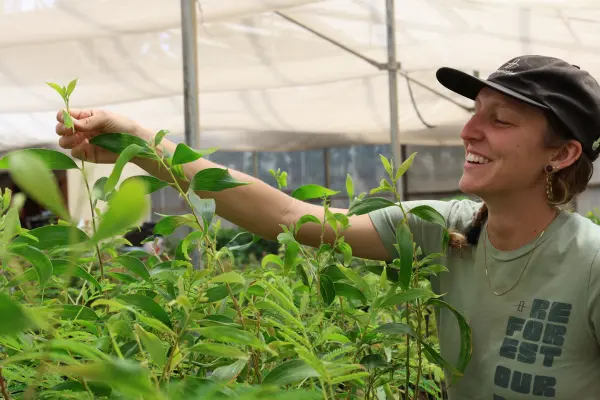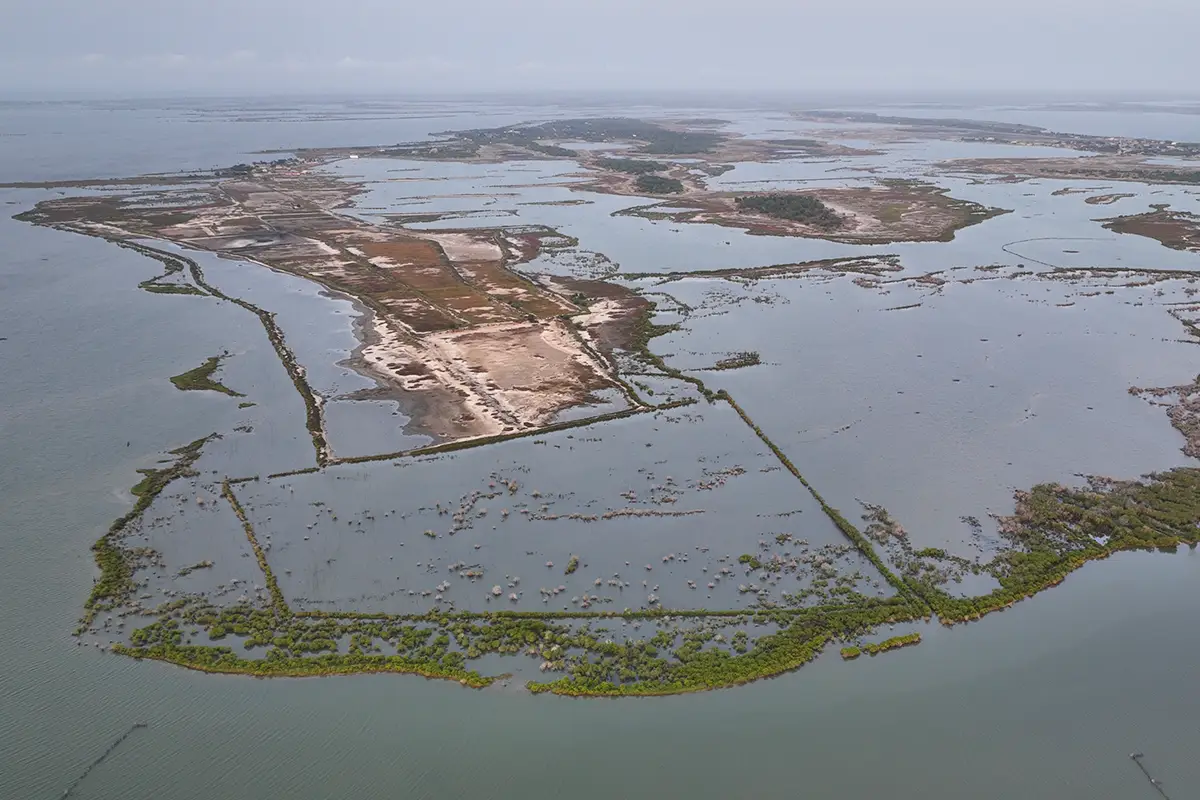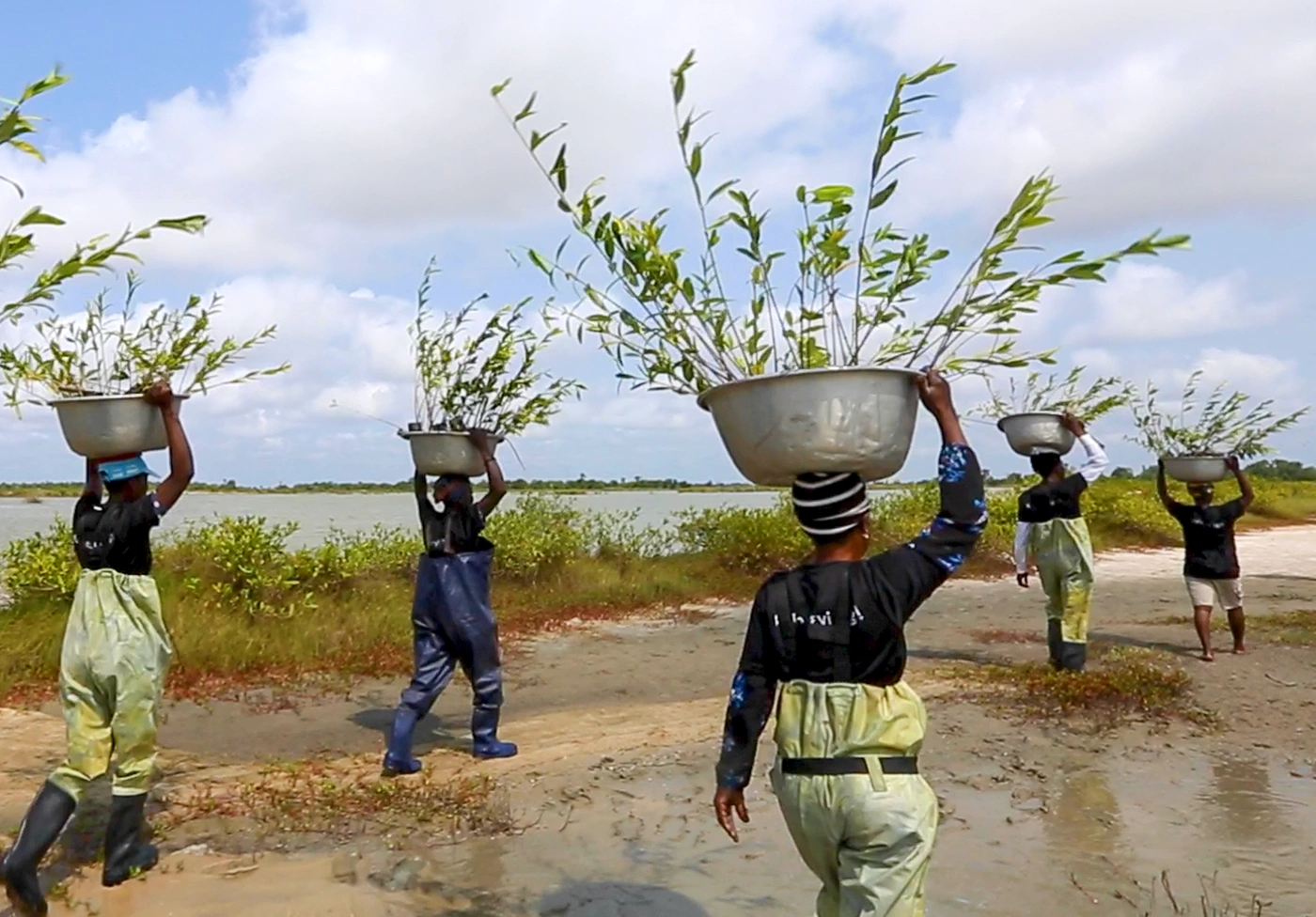Hope Ministries: Recharging Watersheds and Creating Jobs Through Reforestation

Malawi is a small country that generates very little carbon pollution, yet it is among the hardest hit in the world when it comes to climate disasters. Over the past 20 years, a spike in floods, drought, and cyclones has battered Malawi’s people and ecosystems. These disasters have exacerbated a deforestation crisis in the country, which is losing 30-40,000 hectares of tree cover each year — one of the highest rates in the Southern African Development Community.
Hope Ministries International aims to restore Malawi’s native forests. Through ecosystem restoration and sustainable agroforestry, the Lilongwe-based nonprofit is working to cultivate disaster resilience, mitigate poverty, and advance the well-being of women — all while helping to reverse climate change.
Terraformation has partnered with Hope Ministries to scale its ongoing restoration efforts, with the goal of establishing six permanent native forests across the country.
Tackling deforestation and climate change
Terraformation financed the construction of six tree nurseries that will allow Hope Ministries to restore 28 native species — including smooth-barked mahogany (Khaya anthotheca), African blackwood (Dalbergia melanoxylon), and Mgwina (Adina microcephala). The nurseries will enable the planting of 150,000 trees across 113 hectares. The biodiverse forests that result promise to create sustainable jobs for local people and bring back wildlife like elephants, whose habitat has disappeared due to deforestation. They’ll also help counter the rapid tree loss that has destroyed the country’s watersheds and worsened the climate crisis.
In 2016, the deforestation crisis became so severe that Malawi’s government deployed soldiers to stop illegal logging that jeopardized the Lilongwe River, a source of drinking water and hydropower for the country’s capital city.
Creating sustainable jobs
Any long-term solution to deforestation must tackle the underlying drivers of the crisis, according to Hope Ministries Head of Programs and Operations Blessings Mlowoka. “We need to address the root cause of deforestation,” Mlowoka says. “Why are people deforesting? It’s because of poverty.”
Many villages in Malawi lack electricity and rely on charcoal for cooking. With few economic alternatives, community members have turned to forests for charcoal, and have been forced to engage in unsustainable grazing and agriculture. One of Hope Ministries’ goals is to create alternative sources of income that will reduce pressure on forests.
In addition to employing local villagers to gather seeds and tend to trees, Hope Ministries will create opportunities for sustainable agroforestry, including mushroom growing and beekeeping for honey. “Communities need ownership over these projects,” he explains. “They need to know how they can get day-to-day resources for their families.”
Improving women’s access to water
The majority of farmers Hope Ministries works with are women, and the organization makes a deliberate effort to include women in decision-making and ensure that they benefit from the jobs created by forest restoration. “In Malawi, you can’t talk about economic growth without talking about women,” Mlowoka points out. “Deforestation has caused women to suffer a lot.”
Malawian girls and women traditionally bear responsibility for collecting the water their families use to drink, cook, and clean each day. They often wake before sunrise and trek up to 10 kilometers to reach the nearest river and bring clean water home. Severe deforestation has made their journey much more difficult. Aggressive logging has altered microclimates and dried up streams and rivers throughout the country, forcing women to walk farther each day to locate fresh water.
Building disaster resilience
Hope Ministries has worked diligently to lay the groundwork for lasting ecosystem restoration. Through a series of listening sessions, the project team has cultivated buy-in from local villages, who will play a pivotal role in safeguarding the land for future generations. They’re working with primary schools to establish climate change clubs and engage students in tending to trees.
The team also coordinates closely with the government, which owns much of the land designated for restoration, and actively participates in national disaster risk-management planning. They prioritize projects that will build resilience to storms, floods, and drought — all with an eye on reviving Malawi’s ecosystems and communities.
“What we want to see is rain coming at normal rates,” Mlowoka says. “We want to see women walking small distances for water. We want to see them planting trees. We want to see Malawi come back.”
















